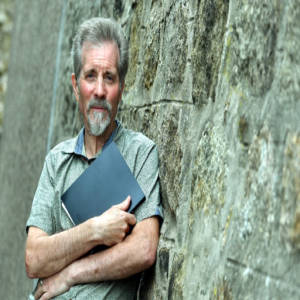Poerty in Motion
This is Robert Gordon College, one of only 3 private schools in Aberdeen.It is situated right in the centre of the city and outside the gate is a statue of Gordon of Khartoum, who bears absolutely no connection to the school at all.
On this site the original Aberdeen Grammar School was situated, and one of England's most famous poets was educated here.
This man is the subject of today's famous/important local folk.
The poet in question was George Noel Gordon Byron, A.K.A. Lord Byron.
Byron's names changed throughout his life. He was the son of Captain John "Mad Jack" Byron and his second wife, the former Catherine Gordon (d. 1811), a descendant of Cardinal Beaton and heiress of the Gight estate in Aberdeenshire, Scotland. Byron's father had previously seduced the married Marchioness of Caermarthen and, after she divorced her husband the Earl, had married her. His treatment of her was described as "brutal and vicious", and she died after having given birth to two daughters, only one of which survived: Byron's half-sister, Augusta.
Engraving of Byron's father, Captain John "Mad Jack" Byron, date unknown
Byron's paternal grandparents were Vice-Admiral The Hon. John "Foulweather Jack" Byron and Sophia Trevanion.[7] Vice Admiral John Byron had circumnavigated the globe, and was the younger brother of the 5th Baron Byron, known as "the Wicked Lord".
He was christened "George Gordon Byron" at St Marylebone Parish Church after his maternal grandfather, George Gordon of Gight, a descendant of James I of Scotland, who had committed suicide in 1779.
In order to claim his second wife's estate in Scotland, Byron's father had taken the additional surname "Gordon", becoming "John Byron Gordon", and he was occasionally styled "John Byron Gordon of Gight". Byron himself used this surname for a time and was registered at school in Aberdeen as "George Byron Gordon". At the age of 10, he inherited the English Barony of Byron of Rochdale, becoming "Lord Byron", and eventually dropped the double surname (though after this point his surname was secondary to his peerage).
When Byron's mother-in-law, Judith Noel died in 1822, her will required that he change his surname to "Noel" in order to inherit half her estate, and so he obtained a Royal Warrant allowing him to "take and use the surname of Noel only". The Royal Warrant also allowed him to "subscribe the said surname of Noel before all titles of honour", and from that point he signed himself "Noel Byron" (the usual signature of a peer being merely the peerage, in this case simply "Byron"). It is speculated that this was so that his initals would read "N.B." mimicking those of his hero, Napoleon Bonaparte. He was also sometimes referred to as "Lord Noel Byron", as if "Noel" were part of his title, and likewise his wife was sometimes called "Lady Noel Byron". Lady Byron eventually succeeded to the Barony of Wentworth, becoming "Lady Wentworth".
John Byron married his second wife for the same reason he married his first: her fortune. Byron's mother had to sell her land and title to pay her new husband's debts, and in the space of two years the large estate, worth some £23,500, had been squandered, leaving the former heiress with an annual income in trust of only £150. In a move to avoid his creditors, Catherine accompanied her profligate husband to France in 1786, but returned to England at the end of 1787 in order to give birth to her son on English soil. He was born on 22 January in lodgings on Holles Street in London.
Catherine moved back to Aberdeenshire in 1790, where Byron spent his childhood. His father soon joined them in their lodgings in Queen Street, but the couple quickly separated. Catherine regularly experienced mood swings and bouts of melancholy,[8] which could be partly explained by her husband's continuing to appear in order to borrow money from her. As a result, she fell even further into debt to support his demands. It was one of these importunate loans that allowed him to travel to Valenciennes, France, where he died in 1791.
When Byron's great-uncle, the "wicked" Lord Byron, died on 21 May 1798, the 10-year-old boy became the 6th Baron Byron of Rochdale and inherited the ancestral home, Newstead Abbey in Nottinghamshire. His mother proudly took him to England, but the Abbey was in an embarrassing state of disrepair and rather than live there, his mother decided to rent to Lord Grey de Ruthyn, among others, during his adolescence.
Described as "a woman without judgment or self-command", Catherine either spoiled and indulged her son or aggravated him with her capricious stubbornness. Her drinking disgusted him, and he often mocked her for being short and corpulent, which made it difficult for her to catch him to discipline him. She once retaliated and, in a fit of temper, referred to him as "a lame brat".
- 0
- 0
- Apple iPhone 4
- f/2.8
- 4mm
- 80

Comments
Sign in or get an account to comment.


